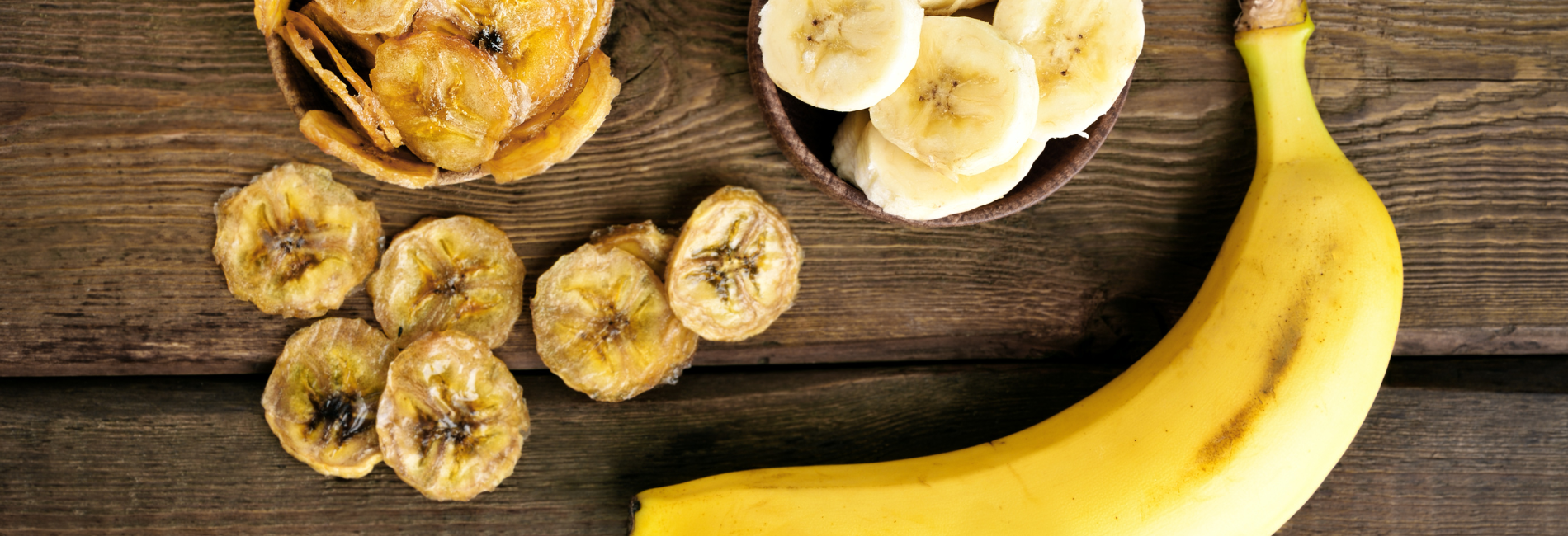Bananas are one of the most beloved fruits globally, known for their convenience, natural sweetness, and impressive nutritional benefits. If you focus on a holistic approach to health, you might be curious: are bananas acidic? This question matters because the pH of foods can influence digestion, oral health, and even inflammation.
In this article, we'll explore the pH of bananas, their impact on your health, and how they fit into an alternative health-focused diet. We’ll also cover common concerns, like acid reflux, tooth enamel health, and the many unique benefits bananas bring to the table.
What Does It Mean for a Food to Be Acidic?
Before diving into bananas, let's quickly define what acidity means in foods. The pH scale measures how acidic or alkaline a substance is, with values ranging from 0 (most acidic) to 14 (most alkaline), and 7 representing neutrality. Foods with a pH below 7 are considered acidic, while those above 7 are alkaline.
Consuming too many highly acidic foods can sometimes lead to digestive discomfort or contribute to conditions like acid reflux. But everyone reacts differently, and many natural health approaches encourage balancing both acidic and alkaline foods to optimize wellness.
Are Bananas Acidic? The pH of Bananas
Bananas are classified as mildly acidic fruits, with a pH ranging between 5.0 and 5.3. This places them just slightly on the acidic side of the scale but far less acidic than citrus fruits like lemons or oranges, which have pH values between 2 and 3.
This mild acidity makes bananas an excellent choice for individuals sensitive to highly acidic foods or those managing acid reflux. Unlike citrus fruits, bananas are much less likely to trigger heartburn or irritation.
How Bananas Impact Acid Reflux and Digestion
For those living with gastroesophageal reflux disease (GERD) or experiencing frequent heartburn, bananas are often recommended. Their low acid content, along with their natural antacid properties, can help neutralize stomach acid. Bananas also have a soothing effect on the stomach lining, reducing irritation and promoting digestive comfort.
Thanks to their high fiber content, bananas help support healthy digestion and gut function. This makes them a natural ally for improving gut health and easing acid reflux symptoms. Research, like a study published in the World Journal of Gastroenterology, has shown that bananas have gastroprotective properties, aiding in the healing of stomach ulcers and reducing gastric acidity.
Nutritional Profile: Bananas Are More Than Just Mildly Acidic
Bananas aren't just mild in acidity—they also offer a range of nutrients that support overall health. Here are some of the key nutrients found in bananas:
-
Potassium: Vital for heart health and regulating blood pressure.
-
Vitamin B6: Supports brain health and emotional well-being.
-
Vitamin C: An antioxidant that boosts immune function.
-
Dietary Fiber: Promotes healthy digestion and supports blood sugar regulation.
This nutrient-packed profile, combined with their mild acidity, makes bananas a balanced option for most people's diets.
Are Ripe Bananas More Acidic Than Green Bananas?
Does the ripeness of a banana affect its acidity? The short answer is yes, but only slightly. Green bananas are higher in resistant starch, which acts as fiber and aids digestion without significantly altering their acidity. As bananas ripen, starches turn into simple sugars, making them sweeter and marginally more acidic. However, even ripe bananas remain mildly acidic, so whether you prefer green or fully ripe bananas, you’re not likely to experience high acidity levels.
Bananas and Oral Health: Should You Be Concerned?
It’s common for people to worry about acidic foods eroding tooth enamel. However, bananas are much less of a concern in this regard compared to citrus fruits. Their creamy texture also means they don’t stick to teeth the way sugary, sticky foods can.
Nonetheless, since bananas do contain natural sugars, it’s always wise to practice good oral hygiene by brushing your teeth after eating them and drinking water to rinse away sugar residues.
Bananas in an Alkaline Diet: Do They Fit?
For those following an alkaline diet—a regimen focused on reducing acidic food intake—bananas can be a suitable fruit. While they are mildly acidic before digestion, their overall impact on the body tends to be neutral to slightly alkaline, due to their mineral content, especially potassium and magnesium.
This “alkaline ash” effect means bananas may help balance the body’s pH after digestion, supporting overall metabolic health and aligning with the goals of an alkaline-focused diet.
Interactive Insight: Comparing Banana pH with Other Fruits
|
Fruit |
Approximate pH |
Acidic or Alkaline? |
|
Lemon |
2.0 - 3.0 |
Strongly acidic |
|
Orange |
3.0 - 4.0 |
Acidic |
|
Pineapple |
3.2 - 4.0 |
Acidic |
|
Tomato |
4.3 - 4.9 |
Mildly acidic |
|
Banana |
5.0 - 5.3 |
Mildly acidic/near neutral |
|
Watermelon |
5.2 - 5.6 |
Mildly acidic/near neutral |
|
Cucumber |
5.1 - 5.7 |
Mildly acidic/near neutral |
As shown in the chart, bananas sit comfortably in the mild acidity range, making them gentler on the digestive system compared to other more acidic fruits.
Can Bananas Help Alleviate Other Digestive Issues?
Yes! Bananas have long been used to support digestive health. Their fiber content helps regulate bowel movements, offering relief from both constipation and diarrhea, depending on the ripeness of the banana. The resistant starch found in green bananas acts as a prebiotic, feeding beneficial gut bacteria and promoting a healthy microbiome—a crucial component of overall health.
A balanced microbiome is important for immune function, mental clarity, and reducing systemic inflammation—areas that are key to holistic health.
Are There Any Downsides to Eating Bananas?
While bananas are generally considered a healthy fruit, there are a few things to be mindful of:
-
Blood Sugar Considerations: Ripe bananas have a higher sugar content, which may impact blood sugar levels. Portion control may be necessary for those managing diabetes.
-
Potassium Levels: Due to their high potassium content, bananas should be consumed in moderation by those with kidney issues.
-
Banana Allergies: Although rare, banana allergies can occur, and individuals with a known allergy should avoid them.
Otherwise, bananas remain a safe and nutritious addition to most natural health diets.
Final Thoughts: Are Bananas Acidic and Should You Eat Them?
So, are bananas acidic? Yes, but only mildly. With a pH just below neutral, bananas are one of the gentler fruits on your digestive system compared to more acidic options like citrus fruits.
For those embracing a natural health lifestyle, bananas offer a delicious, nutrient-rich, and stomach-friendly option. They promote digestive health, support heart function, and balance the gut microbiome—all without the harsh effects of more acidic foods.
Whether you enjoy them in a smoothie, sliced over your oatmeal, or simply on the go, bananas can be a wholesome and comforting addition to your routine. Embrace their benefits and enjoy them as part of a well-balanced diet.



